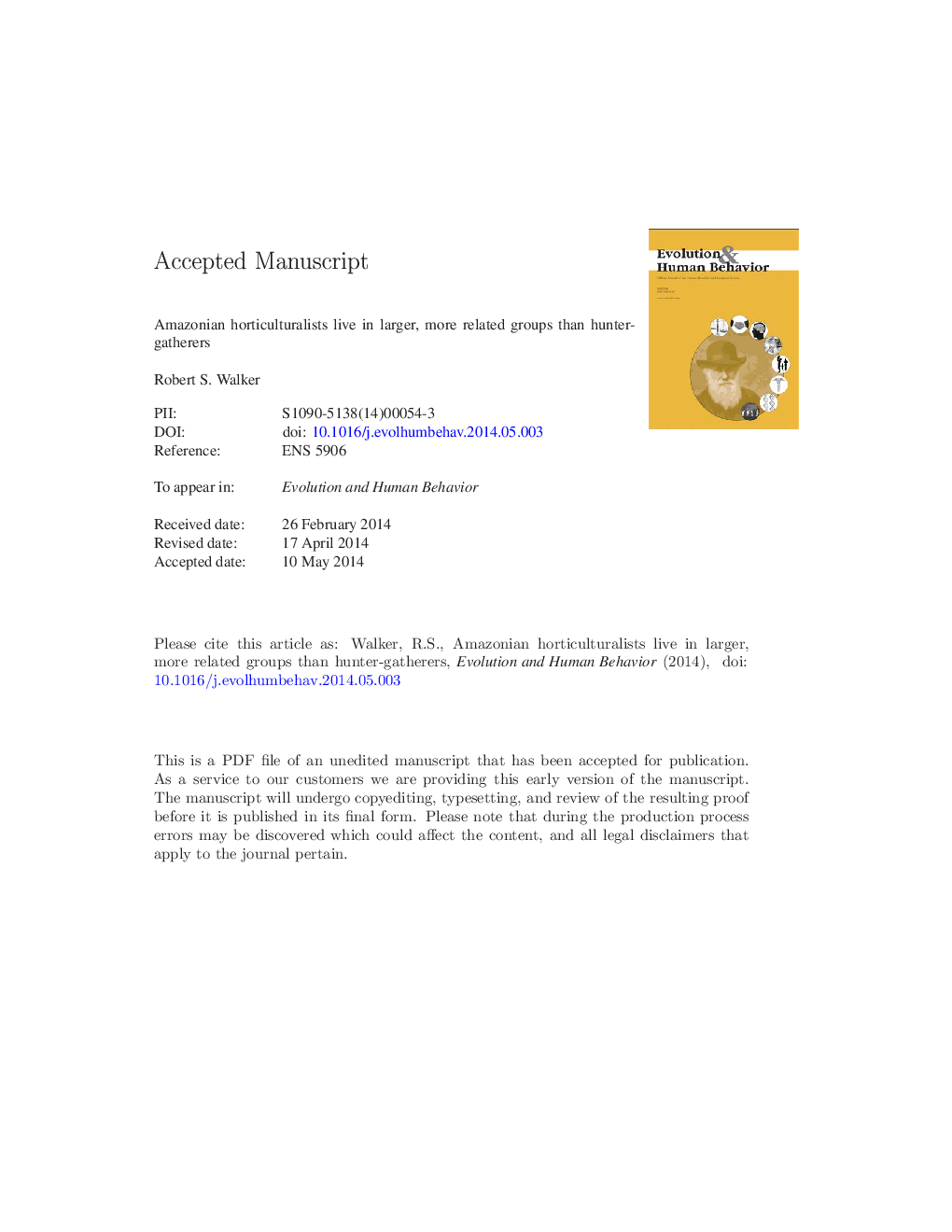| Article ID | Journal | Published Year | Pages | File Type |
|---|---|---|---|---|
| 10464004 | Evolution and Human Behavior | 2014 | 17 Pages |
Abstract
The relatedness of human groups has important ramifications for kin (group) selection to favor more collective action and invites the potential for more exploitation by political leaders. Endogamous marriages among kin create intensive kinship systems with high group relatedness, while exogamous marriages among nonrelatives create extensive kinship with low group relatedness. Here, a sample of 58 societies (7,565 adults living in 353 residential groups) shows that average group relatedness is higher in lowland horticulturalists than in hunter-gatherers. Higher relatedness in horticulturalists is remarkable given that village sizes are larger, harboring over twice the average number of adults than in hunter-gatherer camps. The relatedness differential between subsistence regimes increases for larger group sizes. Large and dense networks of kin may have favored an increased propensity for some forms of in-group cooperation and political inequality that emerged relatively recently in human history, after the advent of farming.
Related Topics
Life Sciences
Agricultural and Biological Sciences
Ecology, Evolution, Behavior and Systematics
Authors
Robert S. Walker,
